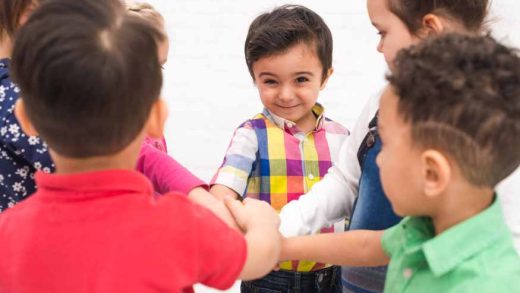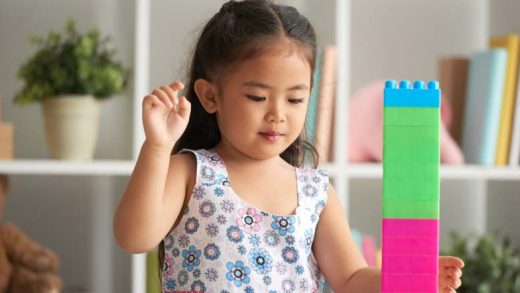We are all prone to making mistakes. Even as adults and parents, we all make mistakes from time to time. This may occur unintentionally or sometimes even on purpose. But it’s crucial that we acknowledge our mistakes and offer our children our sincere apology. And the power of apology eventually guides the child to take responsibility for their actions. It also helps to restore the bond between parents and their children.
It is a well-known fact that parents shape their children’s moral values. Besides, some parents and grown-ups often wonder whether it is appropriate to apologise to their children. There can be reasons that hold them back from apologising. But knowing when you should apologise can always be a positive progression. Let us explore the importance of parental apologies.
Definition of an apology
An apology is an acknowledgement or statement of regret for one’s acts, words, or conduct. It is a confession of fault to others, including making corrections. An apology has certain features:
- Acknowledgment: The first element is to recognise and admit one’s specific action or behaviour that was wrong or caused harm.
- Expression of Regret: It is followed by communicating genuine guilt for the hurt caused.
- Responsibility: Accepting responsibility for one’s actions is a sign of accountability.
- Explanation: Offering a reason for the behaviour to provide context.
- Amends: It involves correcting the mistake or compensating for any harm done.
- Commitment to Change: Last but not least, there should be a willingness to change behaviour to prevent repeating the behaviour.
Power of Apology
Apologising effectively may go a long way toward establishing connections. It increases emotional well-being and builds trust. A parent’s genuine apology shows humility and contributes to the upkeep of close family ties. A parent’s apology to their kid may also have a significant effect on the youngster’s emotional development. Now let’s explore the significant effects of a parent apologising to a child:
- Showing Humility and Accountability:
- Developing Respect and Trust:
- Improving Emotional Intelligence:
- A Positive Conversation:
- Enhances Family ties:
- Teaching Conflict Resolution:
- Promoting forgiveness:
When parents apologise to their children, they replicate humility and accountability. It teaches children to take responsibility for their actions. It is an essential part of personal growth and integrity.
When parents apologise, it shows children that their feelings are valued. This, in turn, nurtures mutual respect and trust. This also makes it possible for people to talk to each other in a safe and open way.
An apology helps children develop emotional intelligence. It shows empathy, emotional control, along with self-awareness. Children tend to recognise and understand the impact of their actions on others.
An apology facilitates healthy communication. Children are encouraged to express their emotions. They also express their thoughts through open and healthy communication.
Parents may strengthen their emotional bond and promote mutual respect with their children by offering an apology to them. It will provide a happy family environment even in the midst of miscommunications and disputes. It conveys love, care, and a nurturing relationship.
Parents show they can handle a disagreement apologising. When children learn how to apologise, they also discover ways to identify needs and resolve conflicts. It could be through open communication, acknowledgment of mistakes, and efforts to make corrections.
An apology serves as an example for showing forgiveness. It teaches students about the appropriate times to apologise and stresses the value of doing so. It allows kids to understand the significance of forgiving others. Furthermore, it is important to acknowledge the beneficial influence it may have on relationship building.
Ways to Offer Your Child an Apology
Children can tell if you are really apologetic or not. Remember that apologising to your children requires honesty, clarity, and a commitment to make apologies. Let’s have a look at some crucial ideas on how to apologise to your child:
- A Clear Apology:
- Describe the Situation:
- Acknowledging Your Child’s Feelings:
- Asking for Forgiveness:
Make your child understand that parents, too, can be wrong sometimes. Conveying a clear apology will let you build a more valued relationship with your children. It deepens the relationship and builds mutual respect and trust. Which then leads to strengthening family bonds over time.
Telling the children what stressed you can ease the situation. Parents sometimes scold or yell at children or might punish them when stressed. But it’s important to explain to children what caused the loss of their temper. And making amends for not repeating it will compensate for the harm. Describing scenarios for your anger will build humility in them. Children will get to learn that mistakes are a part of life. And apologising is a behaviour that contributes to their development and growth.
After scolding, acknowledging how your child is feeling is important as well. It will help them to apologise and value others’ feelings. Validating children’s feelings teaches them that their emotions matter as well as those of others. It also allows children to express their emotions openly and convey them when they are hurt.
Asking for forgiveness from your child resolves the conflict. This way, a child will learn to release the hurt. This will also encourage the child to learn to resolve conflicts and forgive. It will show that as parents and grown-ups, you respect and value your child’s feelings.
Parents play a crucial role in a child’s emotional and behavioural development. When parents don’t shy away from accepting their mistakes and making apologies, their children learn to do the same. Parents can model positive behaviour and build responsibility in their children. And this is exhibited by how we react and resolve when stressed. Parents can teach their children to be apologetic, forgiving and amending by setting a good example by themselves.
We at Kangaroo Kids International Preschool focus on developing children’s ability to apologise and take responsibility for their actions. We understand the importance of teaching them to accept mistakes and take accountability for their actions. While conflict is a natural part of childhood, we focus on nurturing conflict resolution skills. Our approach cultivates early-age discipline and a forgiving nature. Enrol your child with us to be part of their journey toward emotional intelligence and humility.









